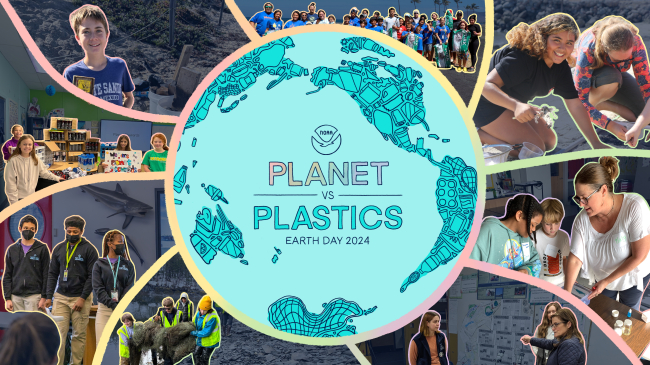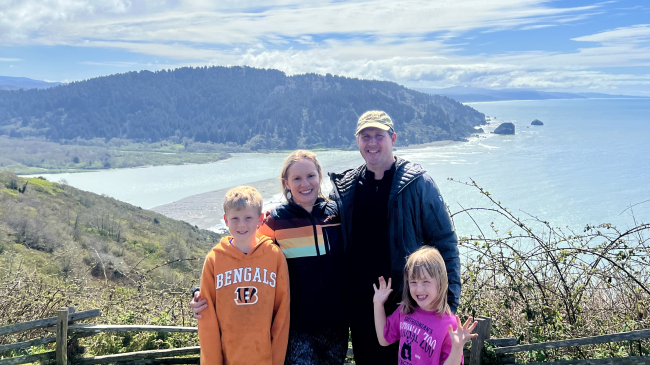Students at 90 schools across the nation – from as far and wide as American Samoa, Hawaii, California, Michigan, Texas, Maryland, Massachusetts and the Virgin Islands – took part in the fourth annual Students for Zero Waste Week 2016 campaign from March 21st and April 22nd.
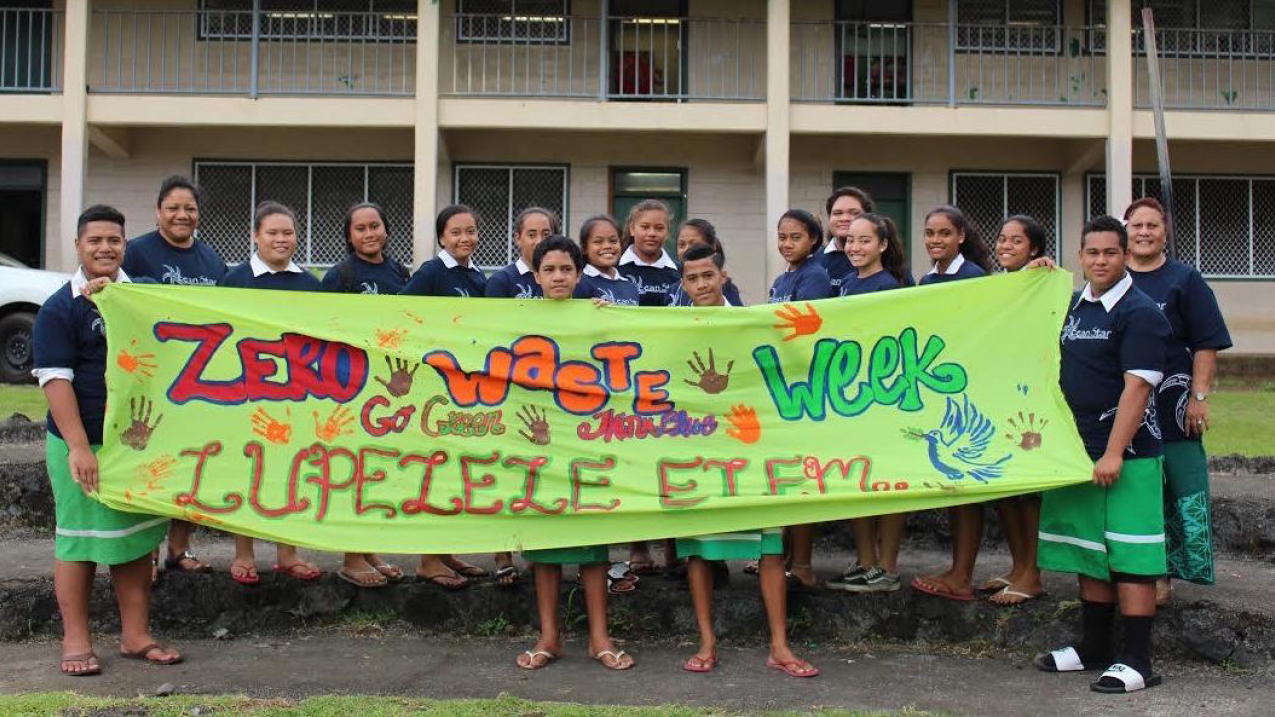
Students at Lupelele Elementary School in Pago Pago, American Samoa worked together to keep their campus clean of litter through campus cleanups. (Image credit: Lupelele Elementary School)
Each school participated in one (or more) of the five campaign weeks, and pledged to take the Zero Waste Week Challenge by setting week-long goals and designing unique activities to address the issue of marine debris. With this pledge, students set out to raise awareness of how waste is negatively affecting the health of our watersheds, national marine sanctuaries and the ocean.
With organizational support from NOAA’s Ocean Guardian School program, the growing campaign continues to be student-focused. “This was completely student-driven, student-created and student-run,” explained Alex Hofsteen, a teacher at the International School of Monterey in Seaside, California. “It was truly inspiring to see middle school students taking initiative, collaborating, [and to see] students teaching students.”
This was completely student-driven, student-created and student-run.
Alex Hofsteen, Teacher at the International School of Monterey, Seaside, California
Students led by example by opting to replace single-use items such as plastic bags, bottles, foam trays and spork packs with more sustainable, reusable options. In addition, schools also focused their energy on reducing their use of paper products, powering down electronics, and ramping up recycling efforts.
At St. Andrews Day School in Edgewater, Maryland, fourth grade students made their own restaurant cards that ask customers to consider not using plastic straws. “We made about 145 cards in all! That's a lot of restaurants in the community that gained awareness about reducing waste!” explained teacher Lori Dixon.
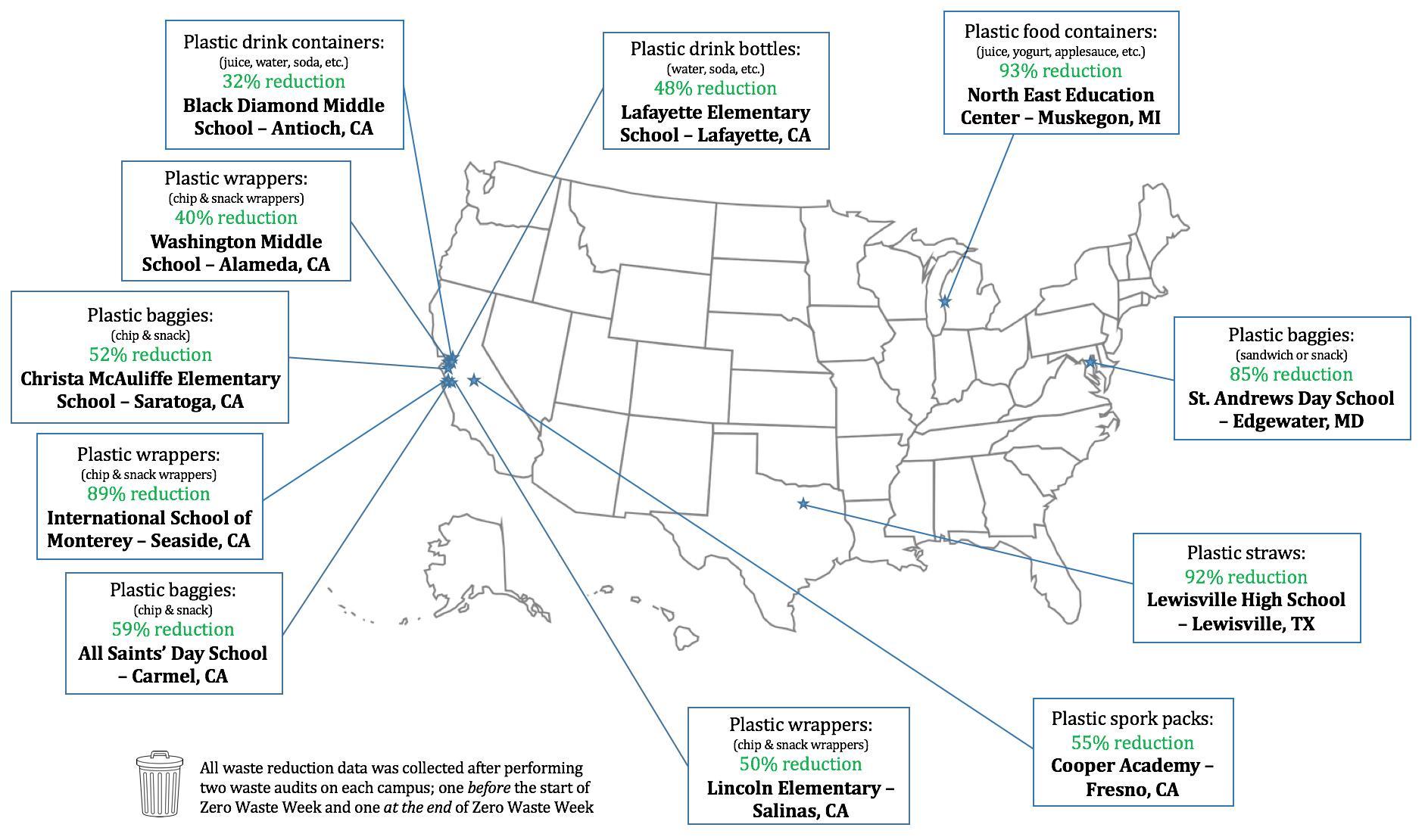
Many schools came up with their own creative ideas on how to collectively teach and celebrate the theme of zero waste. Students made mobiles from trash, assembled mosaics from bottle caps, hosted waste reduction competitions, recorded zero waste PSAs, and more!
As they worked towards zero waste, students also had opportunities to come together to discuss future zero waste changes they would like to see on their campuses, in their homes and in their own communities. “They [students] seemed pretty eager to weigh in with new ideas for turning our ‘Zero Waste Week’ into more of a ‘Zero Waste Way’,” said Kevin Day of All Saints’ Day School in Carmel, California.
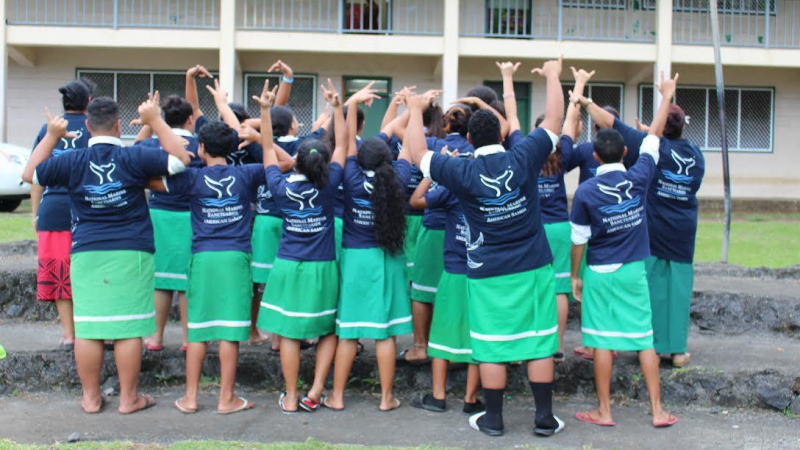
As students’ awareness grew, they gained insight into their individual and collective impact on marine ecosystems, and in turn, gave real meaning to the campaign’s motto: GO GREEN. THINK BLUE!
Want to get involved? Schools can register to participate in the upcoming Students for Zero Waste Week, which will take place between March 20th and April 21st, 2017. Students can also submit artwork to the Students for Zero Waste Week art contest. Submissions are due November 18th, 2016. This story was provided by the Office of National Marine Sanctuaries, a member of the NOAA Education Council, as part of our ongoing efforts to share education accomplishments from across NOAA.


